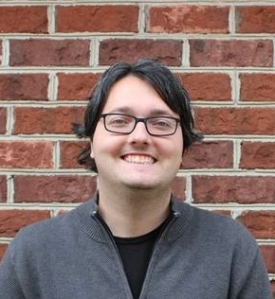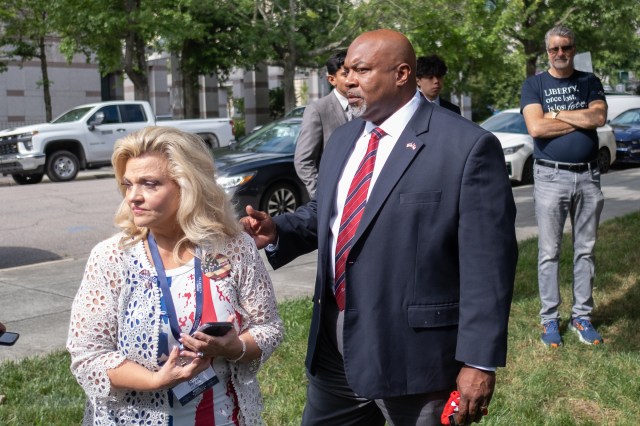Stay ahead of the curve as a political insider with deep policy analysis, daily briefings and policy-shaping tools.
Request a DemoIs North Carolina equipped to handle an aging population?
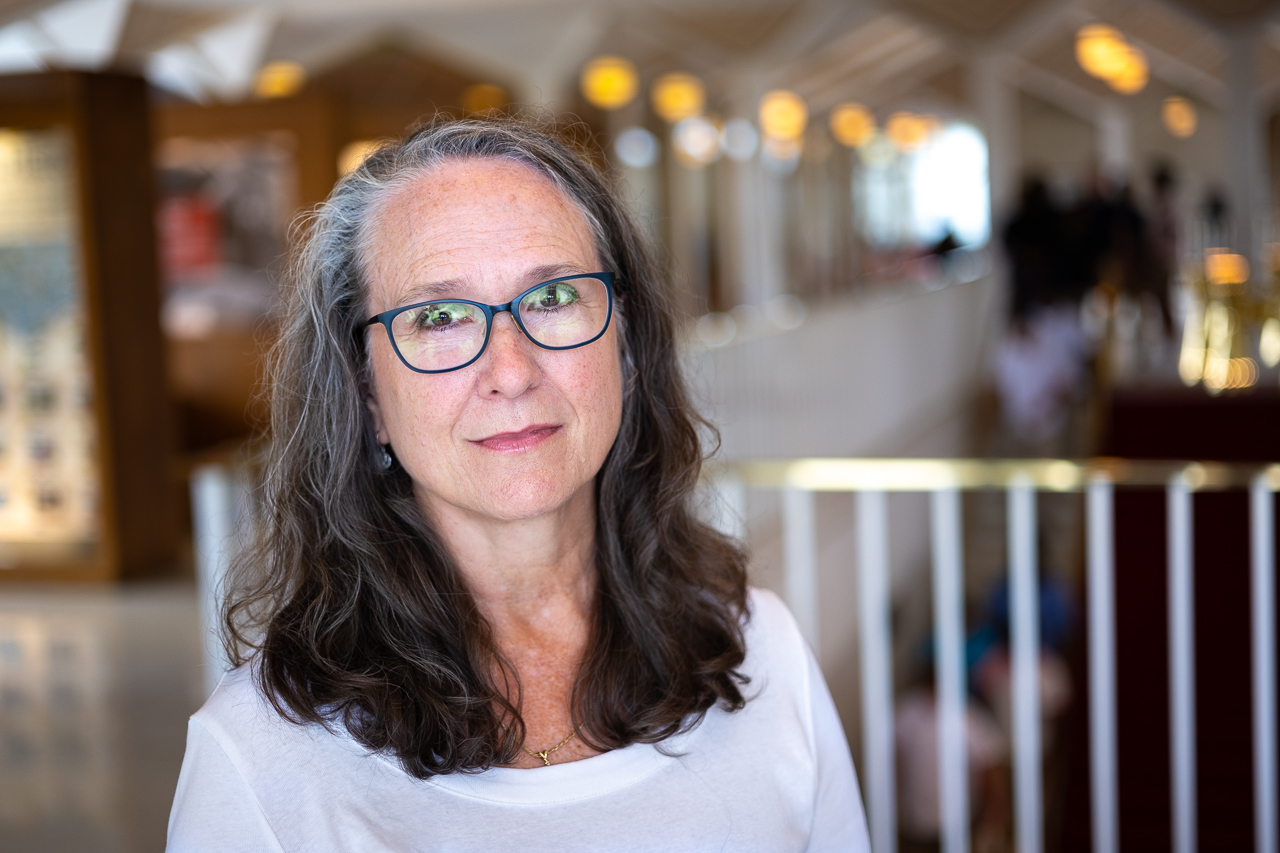
Stephanie Sudano, a former civil engineer in the town of Holly Springs, stops by the Legislative Building on June 19, 2024: “The reality is we are going to have older people. What we have right now is absolutely not going to cut it.” (Credit: Clifton Dowell)
- North Carolina’s population is aging, prompting concerns about future care
- Preparing for future demographic challenges is easy to put off amid day-to-day concerns
- Despite urgency, legislative focus on aging services has diminished since the 1990s
Stephanie Sudano, a former civil engineer in the town of Holly Springs, wasn’t trained in the field of medicine or nursing. None of her three sisters were either. But they have all become 24/7, on-call medical caregivers.
Stephanie’s father had a stroke two years ago. The aftermath saw repeated illnesses cropping up, forcing extended hospital stays. The four sisters cobbled together a triage of care, communicating travel schedules and health updates so their father would always have a family member present.
To complicate matters, Stephanie’s mother was diagnosed with a brain tumor last fall. Since then, her mother has received major surgery and suffered a fall. Stephanie regularly travels five hours — from Raleigh to Hendersonville — to help relieve her sisters of their daily caregiver tasks and responsibilities.
Typical signs of aging — hearing loss, loss of mobility, onset dementia — have only added to the struggles to ensure adequate care.
North Carolina’s 65-and-older population is projected to increase by 50% — to 2.7 million from 1.8 million — between 2021 and 2041, according to ncIMPACT, a statewide initiative launched by the UNC School of Government to help communities use data to inform decision-making.
The projected increase is something Michelle G. Ries, President & CEO of the North Carolina Institute of Medicine, is well aware of. Ries says that this changing demographic propelled the creation of a report entitled “A Place to Thrive: Creating Opportunities to Age Well in North Carolina.”
“We were looking at the demographic changes in the state, the services and support in that older category and what they will need,” Ries said. Following a presentation to the Families, Children and Aging Committee last month, Ries said legislators have expressed interest in the presentation and are inquiring about next steps of how to best put the institute’s recommendations in motion.
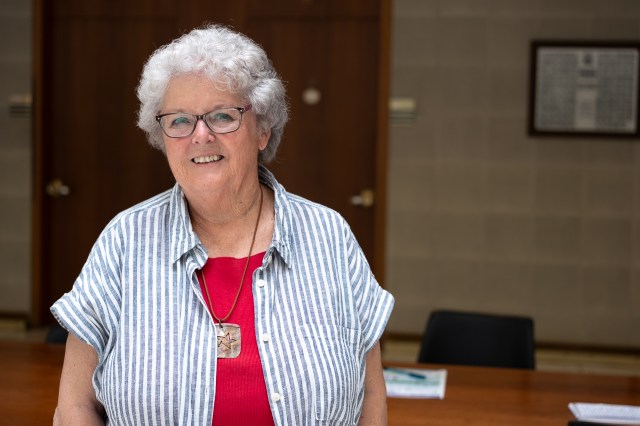
The need for services
Neighbors helping neighbors is how Mary Bethel described her upbringing in Bertie County 70 years ago.
“My mother was always going to see the older people in the community and we would take food and just visit,” Bethel said. “It was a genuine pleasure.”
That experience spurned her interest in therapeutic recreation and social work. When she walked into the Division of Aging office off of Hillsborough Street 50 years ago, her simple admonition of “I like working with old people” earned her a job.
In 2024, now part of the cohort she had dedicated a lifetime of service to, her work experience has only emboldened her passion for aging services and reform.
“Well, everybody hopes to age,” Bethel chuckled. “It’s better than the alternative.”
Demographic changes — 88 North Carolina counties have more people over the age of 60 than under the age of 18 — have brought renewed focus on Bethel’s work. Legislative efforts that stalled and went nowhere 20 years ago are now being brought to the forefront, Bethel says.
“The 80-plus age population is just going to skyrocket,” Bethel said. “They’re the ones that are going to need services and more support. Most of them are going to want to stay in their homes. Communities will hopefully strive to have a good, continuous service of care so they can support people and their families. …We need to have a robust availability of services.”
Most people don’t think about the future or take actions to prepare for a crisis until it hits, Bethel says. About 30% of young adults between the ages of 25 to 34 in the United States have zero money saved for retirement. How can a state’s resources be allocated to a problem that most people are already punting down the road?
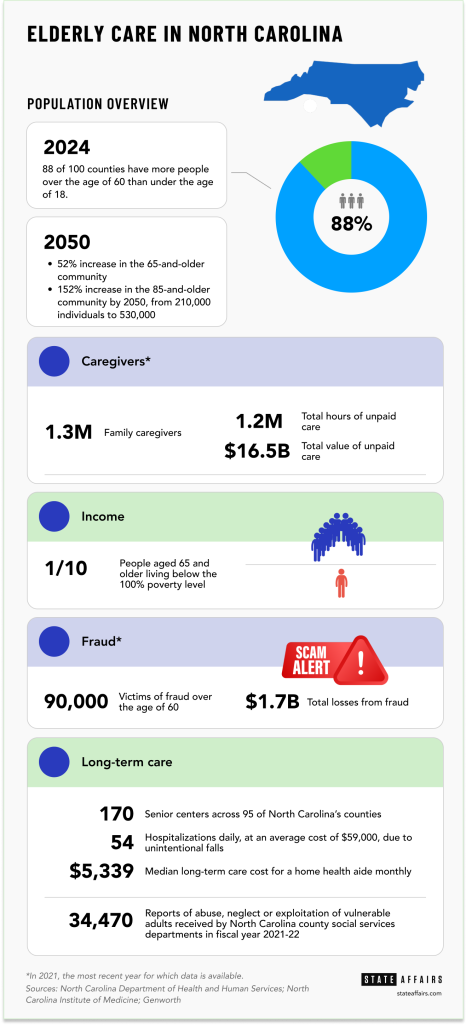
The unprepared
This short-sightedness can also apply to legislators. The policy arena will always be dominated by the short-term, with politicians more rightfully concerned with day-to-day budget updates and election cycles every two years than grappling with long-term issues.
A convergence of issues — a work shortage crisis, young people saddled with debt and unable to adequately save, lack of available housing — have gotten worse post-COVID. What will it look like 40 years from now when the people most impacted by these issues want to retire?
“20 years [ago] these issues would be a nonstarter legislatively,” Bethel said. “These things are only becoming more relevant now that the demographics are changing. Some of these are hard issues to think about. What changes do we need to make today to have a better handle on the future?”
Even older adults may not be thinking about how they would like to close out their life. Decisions about having a bedroom on the first floor or having family members who can fulfill eventual caregiver roles may be issues, like a young person’s retirement fund, that are convenient for later. Retirement to Florida sounds nice, but when that individual is widowed, 500 miles from their nearest family members and not quite as spry as they remember, that retirement plan becomes more circumspect.
“I think it’s going to be a real reality check pretty soon,” said Bethel, who frequently traveled over two hours to coordinate caregiving for her own mother suffering from dementia.
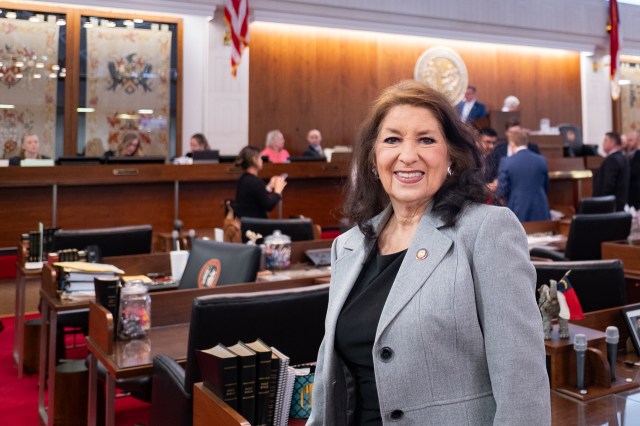
One voice, one mission
Rep. Donna McDowell White, R-Johnston, has had a long career as a public health nurse, primarily in Orange and Johnston counties. For about the last 20 years, she’s been involved in the field of aging, most recognizable for her radio appearances as a fraud and scam prevention consultant for elderly individuals.
Despite the demographic urgency propelling the need for aging services, White has seen funding and legislative priority diminish over the years and not fully recover.
An aging commission in the ‘90s that White was acutely aware of “faded out.” Within her first year at the Division of Aging Services in 2004, adult services was added to that department’s scope, weakening its focus. When White joined the Legislature in 2017, there was an aging committee that has since been replaced with a Families, Children and Aging Committee that often puts aging issues on the backburner, she said.
“We just need to take aging and let it have a platform as itself,” White said, citing the rapidly aging population. “That’s not just going to affect health care. It’s going to affect employment, entertainment. It’s going to affect the economy, business. There’s no area in our state or topic that’s not going to be impacted.”
White, noting the Pollyanna in herself, said she became a nurse because she wanted to take care of everybody and fix the world. She hasn’t accomplished that Herculean task, but she did something just as valuable — care for her family at the end of their lives.
White took care of her own mother for the last 10 years of her life in her home. A few years later, White had the honor of taking care of her father in that very same bedroom before his passing.
Her lifetime of accumulated nursing skills and her own family caregiving experience have compelled White to find an avenue for aging to have a singular voice and platform in the General Assembly.
“I’ve seen the problem with my eyes, I know it from the statistics and we got to do something,” White said. “The next [elderly] generation has put a lot into building America. They do not deserve to be totally ignored.”
Legislatively, Bethel agrees with White — a single vehicle in the General Assembly for aging issues to be at the forefront would go a long way in preventing issues down the road and making it easier for those in a difficult transitional period of life.
“I think it’s an exciting time,” Bethel said. “I think older people have a lot to offer the state, with the skills, abilities and knowledge that you accumulate over a lifetime. But there are challenges that people have that I think is an important role for public services to address.”

Stephanie Sudano’s father died a few weeks ago. He was able to pass away with dignity, in his home surrounded by loved ones who had invested years into his personal wellbeing over the final chapter of his life.
“If it had been just me…,” Stephanie pondered about handling her responsibilities by herself. “I would be a shell of what I am today because it would have been so hard … It’s harder than a job.” Since her experience with her parents, Stephanie and her sisters want to become advocates for reform to ease the burden on those experiencing hardship due to aging parents.
Could the work of Stephanie and her sisters (and also Mary Bethel and Donna White) be considered gainful employment that they could be reimbursed for?
“That would be very far-fetched to think about,” Bethel said, adding there are many forward thinking proposals that legislators may have to consider in a changing demographic environment. “But, it’s the type of thing we need if we are going to address the reality of what families are dealing with.”
For questions or comments, or to pass along story ideas, please write to Matthew Sasser at [email protected] or contact the NC Insider at [email protected] or @StateAffairsNC
Know the most important news affecting North-carolina
Get our free weekly newsletter that covers government, policy and politics that impact your everyday life—in 5 minutes or less.
Mark Robinson hires law firm, vows to fight CNN
The Mark Robinson for Governor campaign announced late Tuesday afternoon the hiring of the Binnall Law Group to investigation CNN reports that the Republican candidate described himself as a “Black nazi” on a social media porn forum. In a report published Thursday afternoon on CNN, Robinson is linked to a series of highly objectionable comments made years …
Michelle Morrow called ‘dangerous’ in new ad from Mo Green campaign to lead NC schools
Mo Green for NC has released the campaign’s first TV ad: Dangerous. The ad is the first one in a seven-figure statewide ad buy across television, digital, and connected TV, according to a news release. The ad features the GOP nominee for State Superintendent of Public Instruction, Michele Morrow, in a series of video clips. “Michele …
Tennessee governor says he canceled N.C. appearance before porn scandal
Gov. Bill Lee, who heads the Republican Governors Association, declined to say Monday whether he thinks North Carolina Republican gubernatorial nominee Mark Robinson should drop out following reporting that he described himself as a “Black nazi” on a social media porn forum. Lee had been scheduled to appear as a “special guest” at the fundraiser, …
Aftermath of Mark Robinson scandal consumes NC politics
The storm of controversy surrounding Lt. Gov. Mark Robinson’s gubernatorial campaign showed no signs of calming over the weekend as fellow GOP candidates backed away from him and a top Republican in Washington challenged him to file a lawsuit or get out of the race. By Sunday evening, top staffers on Robinson’s campaign had resigned …
